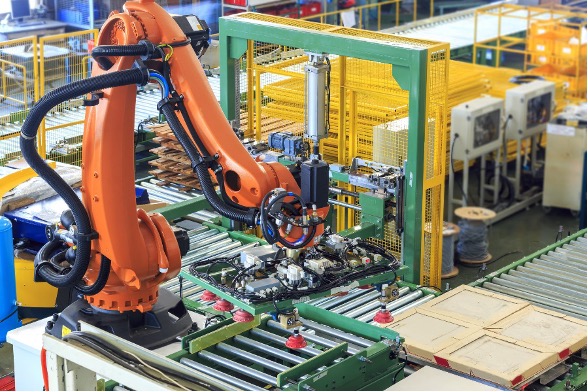
Warehouse automation: can Malaysia be a regional champion?
Warehouse automation and warehousing is an area that Gan Soon Kiat, founder and managing director of Woodtrees, believes could be Malaysia’s path to spearheading digital transformation in the region, a region that sees e-commerce as one of the leading sectors of its growing internet economy.
The internet economy in the Southeast Asian region is one that is expected to reach US$1 trillion in gross merchandise value by 2030, with e-commerce one of its strongest supporting pillars. However, the growth of e-commerce in the region has to see the same rate and speed of growth within the logistics sector as well, otherwise, supply chain issues will quickly bog down the e-commerce industry.
As such, it is no surprise that the logistics sector, and the subset of warehousing, has become an area of growth in the region, with warehouses getting busier by the day, as the demand for more efficient warehouses has logistics companies turning to technology to build the next-generation storage spaces that can cater to this industry.
In fact, warehouses are even identified as the new hot property in Asia, due to the unique problem created by strong online shopping demands and supply chain disruptions. This problem is that warehouses around the world are close to full capacity, with vacancy rates at record lows, with the vacancy rate in Asia sitting at around 3%.
Warehouse automation in Malaysia
For Gan, here lies an opportunity for Malaysia to rise up and be a market leader in the region for warehousing as he believes, with the right push and education, Malaysia has the potential and capacity to spearhead the region’s digital transformation and to answer this dearth in warehousing options.
Warehouse automation, the bread-and-butter of Gan’s company Woodtrees, involves the automation of repetitive tasks, which can involve digital automation, such as with a warehouse management system, and physical automation, which involves the use of robotics. This, in turn, takes care of labor-intensive, time-consuming duties, allowing workers to focus on more value-added tasks, such as quality control.
However, according to Gan, the first step for Malaysian SMEs is not automation, but rather by increasing the efficiency of their logistics processes by first modernizing legacy systems.
“We notice that there are quite a number of companies in Malaysia which are operating using their legacy systems from many years back, and are looking for a proper system that is reliable and cost-effective to maximize their operations output accurately. For a customer that is using a very old legacy system from many years back, we could increase their operational efficiency by assisting them to replace their older system,” said Gan.
Warehouse automation solutions then come into play, when the SMEs are ready to grow further and start their expansion. Gan notes that the process of automation will serve to increase daily operations in handling goods with minimum manpower while increasing inventory accuracy and improving safety by minimizing human input and thus, human error.
Here, Gan has also noted that the optimism for 5G in terms of IR4.0 and IoT has to be tempered.
“When the Malaysian government announced that 5G will be rolled out soon in Malaysia, everyone was very excited. However, there are still ongoing discussions for the 5G rollout, from maturity, cost, to coverage factors. For sure 5G will be our future, but 4G is here to stay for some time. We are monitoring the current progress of 5G closely, and our research and development team will look into it at the right time,” explained Gan, though he believes that leveraging IoT would allow warehouses to lower their costs by up to 60% while improving business performance by up to 30%.
Going beyond Malaysia
Gan has also shared Woodtrees’ own plans for the region. As it stands, the warehouse automation solutions company believes the year will be good for them, with both local and international perspectives in the pipeline.
“Our priority market will be of course in our home ground in Malaysia, where our headquarters will be based. After Malaysia, our next expansion plan is to expand our footprint to Singapore and Thailand within 2 years, followed by Indonesia, Vietnam, and China within 5 years,” said Gan.
On the topic of cybersecurity as the warehousing industry races to keep pace with the growth of e-commerce, Gan noted that the threat remains for every company and that the way forward for Woodtrees was in working closely with their clients’ cybersecurity people.
“We understand that most companies have their own IT policy, thus working together with them will be the best approach. Together we will reduce the risk, if not eliminate the risk altogether. Some of our software security features also ensure that only IP addresses and devices which are registered into our system can be used to operate the systems in the warehouse,” commented Gan.
Other options to maintain the integrity of the network were to code in start and end times for authorized access, which would help prevent unauthorized access from unrecognized devices and IP addresses, or access being gained outside the allotted time.
READ MORE
- Ethical AI: The renewed importance of safeguarding data and customer privacy in Generative AI applications
- How Japan balances AI-driven opportunities with cybersecurity needs
- Deploying SASE: Benchmarking your approach
- Insurance everywhere all at once: the digital transformation of the APAC insurance industry
- Google parent Alphabet eyes HubSpot: A potential acquisition shaping the future of CRM


